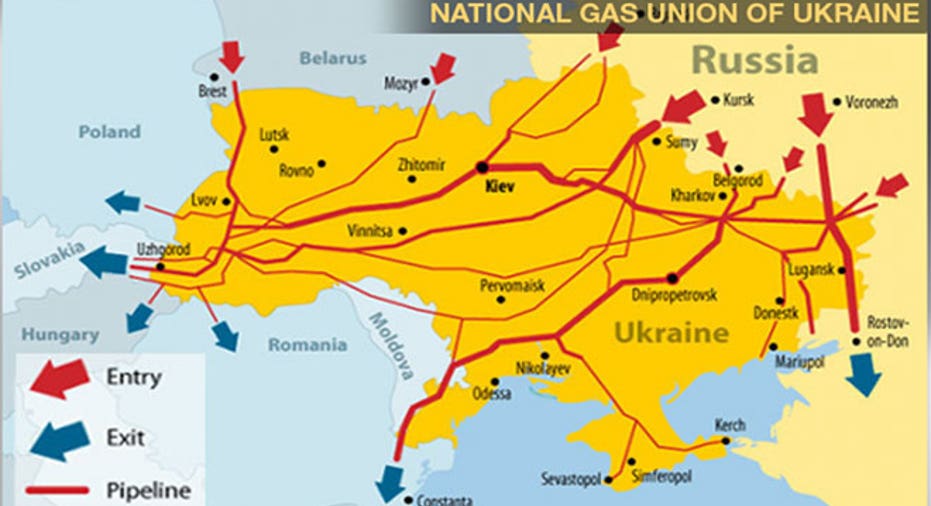Russian Stocks Plunge on Ukraine Crisis; Equity Index Sheds $58B

Almost $60 billion evaporated from Russia’s stock market on Monday as global investors were spooked by Vladimir Putin’s invasion of Crimea and the West explores economic sanctions.
Russia’s MICEX index plummeted as much as 13% in response to the fast-moving Ukrainian situation, which has pitted Moscow against the West in a crisis reminiscent of the Cold War.
Financial pain was quickly felt by Russian investors as the ruble tumbled 2% against the U.S. dollar, forcing the country’s central bank to dramatically increase interest rates by 1.5 percentage points to 7%.
The selling wasn’t restricted to Russia as the Dow Industrials dropped 120 points out of the gate on Monday and crude oil soared $2 a barrel to $104.59 as energy markets mull the implications of a wider conflict.
“There are shockwaves upon shockwaves if this thing continues to spiral out of control. I would be a seller of Russian stocks down 13%,” William Browder, an outspoken Putin critic and CEO of Hermitage Capital Management, told FOX Business. “I’ve seen the way Russian markets react to this stuff and 13% is not a lot.”
The MICEX index was recently trading down 10.79% at 1288.81, leaving it off almost 15% on the year. The Russian benchmark shed about $58.4 billion in market cap since the end of trading on Friday, according to Reuters, which cited the index’s press service. That exceeds the $51 billion Russia shelled out to spend on the Sochi Winter Olympics last month.
Yandex (NASDAQ:YNDX), Russia’s largest Internet search engine, tumbled almost 15% in recent U.S. trading.
Russia’s central bank surprised investors by raising interest rates sharply to 7% in response to the tumbling ruble. Analysts at Brown Brothers Harriman predicted more rate hikes will be needed to offset pressure on the currency.
It’s not clear how the West will react to Russia’s move into Crimea, but the G-7 already abandoned plans to hold a G-8 summit in Sochi.
It is possible Russia will be hit by economic sanctions by the U.S. and Europe. Russia conducted $38 billion in two-way trade with the U.S. in 2013, according to the Census Bureau, while the EU had about $280 billion in two-way trade with Moscow as of 2012.
“The problem with sanctions is that it may hurt the sanctioning countries as much as it damages Russia,” Peter Boockvar, chief market analyst at The Lindsey Group, wrote in a note to clients.
Tough sanctions could hurt big multinationals like McDonald’s (NYSE:MCD) that have increasingly pushed into Russia.
“Barring a Russian attempt to take all of eastern Ukraine, which would produce a grave crisis, it appears that the big angle is economic -- with a growing likelihood of sanctions that will bite, to the displeasure of multinational corporations which may have to curtail their business dealings with Russia,” Greg Valliere, chief political strategist at Potomac Research, wrote in a note to clients.



















